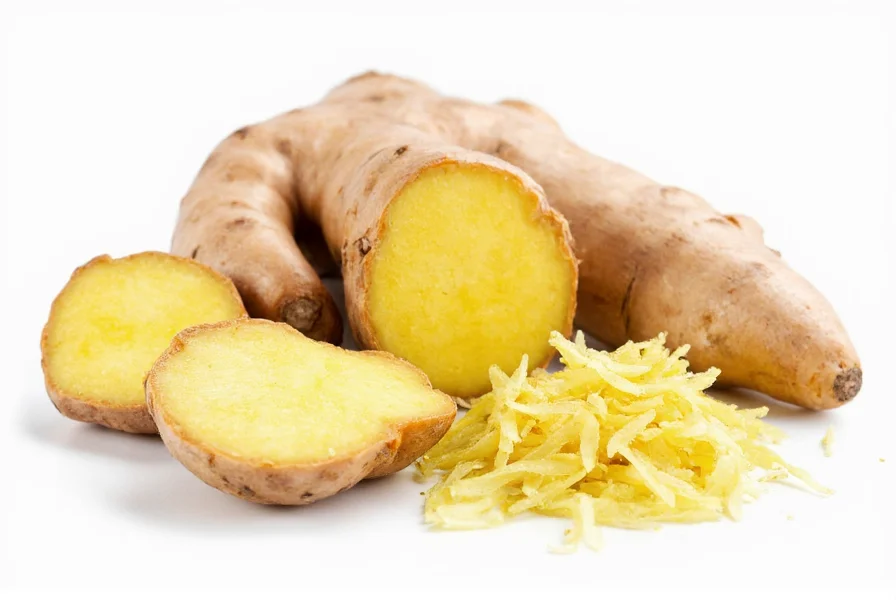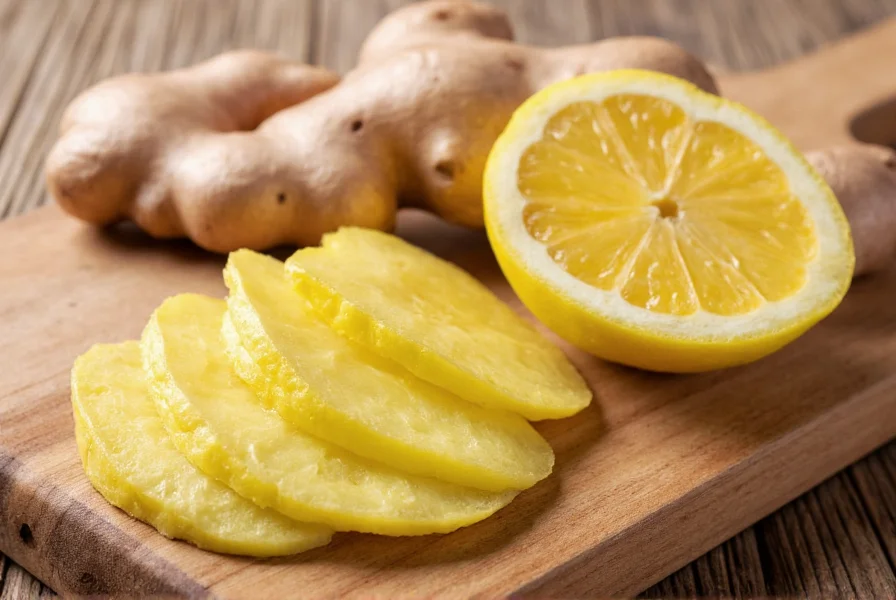Exploring Ginger's Versatile Applications
Ginger has been utilized for thousands of years across various cultures for its distinctive flavor and therapeutic properties. Modern research continues to validate many traditional uses while uncovering new applications for this remarkable botanical. Understanding the evidence-based uses of ginger helps maximize its benefits while avoiding common misconceptions.
Culinary Applications of Ginger
Ginger's unique flavor profile makes it indispensable in global cuisines. In Asian cooking, fresh ginger forms the aromatic base for countless dishes, from stir-fries to soups. Its zesty warmth complements both sweet and savory preparations, making it equally valuable in baking gingerbread or crafting spicy curries. Professional chefs often use ginger in three primary forms: fresh root for intense flavor, dried powder for convenience, and crystallized for desserts.
When preparing ginger for culinary uses, proper technique matters. Peeling with a spoon preserves more flesh than using a knife, while freezing whole roots makes grating easier. For maximum flavor extraction in beverages like ginger tea, simmering sliced ginger for 10-15 minutes releases more active compounds than quick steeping.
| Culinary Application | Recommended Form | Usage Tip |
|---|---|---|
| Asian stir-fries | Fresh grated | Add early in cooking for deeper flavor integration |
| Baking | Dried powder | Use 1/4 teaspoon powder per tablespoon fresh ginger |
| Teas and beverages | Fresh sliced | Simmer 10-15 minutes for optimal compound extraction |
| Preserves and candies | Candied/crystallized | Pair with citrus flavors for balanced sweetness |
Medicinal Benefits Supported by Research
Scientific studies have validated ginger's effectiveness for several health applications. Clinical trials demonstrate ginger's efficacy for nausea relief, particularly for morning sickness during pregnancy, postoperative nausea, and chemotherapy-induced nausea. A comprehensive review published in the International Journal of Preventive Medicine confirmed ginger's antiemetic properties are comparable to conventional medications with fewer side effects.
For digestive health, ginger accelerates gastric emptying, which explains its traditional use for indigestion and bloating. Research in the World Journal of Gastroenterology found ginger reduced symptoms of functional dyspepsia. The anti-inflammatory properties of gingerol, the primary bioactive compound, show promise for managing osteoarthritis pain, with multiple studies reporting significant pain reduction compared to placebo.
When considering ginger for inflammation management, consistent daily consumption appears more effective than occasional use. Most clinical studies use doses between 1-2 grams of powdered ginger or 10-20 grams of fresh ginger daily. However, individuals taking blood thinners should consult healthcare providers before regular ginger consumption due to potential interactions.

Traditional and Cultural Uses
Ayurvedic medicine has incorporated ginger for millennia as a "universal remedy" for balancing bodily systems. Traditional Chinese Medicine classifies ginger as warming, using it to treat cold-related conditions and improve circulation. In Caribbean folk medicine, ginger tea remains a common remedy for colds and respiratory discomfort.
These traditional applications often align with modern scientific understanding. The warming sensation from ginger comes from gingerol activating TRPV1 receptors, the same pathway affected by chili peppers. This explains ginger's traditional use for improving circulation and providing warmth during cold conditions.
Beauty and Skincare Applications
Ginger's antioxidant properties translate well to skincare routines. Topical application of diluted ginger extract shows potential for reducing skin inflammation and improving complexion. Some studies suggest ginger's compounds may inhibit melanin production, offering natural brightening effects.
For hair care, ginger's circulation-boosting properties may support scalp health. A small clinical trial published in the Journal of Cosmetic Dermatology found topical ginger extract increased hair growth in participants with alopecia. However, direct application of undiluted ginger juice can cause skin irritation, so proper dilution is essential.

Practical Implementation Tips
Select firm, smooth ginger roots with tight skin for optimal freshness. Store unpeeled ginger in the refrigerator for up to three weeks or freeze for longer preservation. When preparing ginger for medicinal use, avoid boiling vigorously as high heat may degrade some beneficial compounds.
For digestive support, consuming small amounts of fresh ginger before meals shows better results than larger doses after eating. Those using ginger for nausea relief often find chewing crystallized ginger or sipping ginger tea provides faster symptom relief than capsules.
Safety Considerations
While generally safe, ginger may cause mild heartburn or mouth irritation in some individuals. The recommended daily limit for most adults is 4 grams of ginger in any form. Pregnant women should consult healthcare providers before regular consumption, though moderate culinary use is typically considered safe.
Individuals taking anticoagulant medications should exercise caution with ginger supplements due to potential blood-thinning effects. Those with gallstones should consult doctors before regular ginger consumption as it may increase bile production.
Conclusion
Ginger's versatility spans culinary, medicinal, and wellness applications with substantial scientific backing for many traditional uses. By understanding evidence-based applications and proper usage techniques, individuals can effectively incorporate ginger into daily routines for improved health and culinary enjoyment. The key to maximizing ginger's benefits lies in consistent, appropriate usage tailored to specific needs rather than expecting immediate dramatic results.
Frequently Asked Questions
What are the most effective uses of ginger for nausea relief?
Research shows ginger is most effective for nausea relief when consumed in doses of 1-1.5 grams before potential nausea triggers. For morning sickness, crystallized ginger provides quick relief. Postoperative and chemotherapy-related nausea responds well to ginger capsules taken 30-60 minutes beforehand. The active compounds in ginger work on serotonin receptors in the digestive tract to reduce nausea signals.
How much ginger should I consume daily for inflammation reduction?
Studies on ginger for inflammation typically use 1-2 grams of powdered ginger or 10-20 grams of fresh ginger daily. This amount provides approximately 20-40 mg of gingerol, the primary anti-inflammatory compound. Consistent daily consumption over several weeks shows better results than occasional use. Fresh ginger may offer slightly higher bioavailability of active compounds compared to powdered forms.
Can ginger help with digestive issues and how should it be used?
Yes, ginger accelerates gastric emptying and reduces digestive discomfort. For best results with digestive issues, consume 1-2 grams of fresh ginger 15-30 minutes before meals. Sliced or grated ginger in warm water makes an effective pre-meal digestive aid. Research shows this timing optimizes ginger's effect on digestive enzymes and stomach motility, reducing bloating and indigestion.
What are the potential side effects of consuming too much ginger?
Excessive ginger consumption (more than 4 grams daily) may cause heartburn, mouth irritation, or mild stomach upset. Some individuals experience increased bleeding risk when combining high ginger intake with blood-thinning medications. Rarely, excessive topical application can cause skin irritation. Most side effects are mild and resolve when ginger consumption returns to moderate levels (1-2 grams daily).











 浙公网安备
33010002000092号
浙公网安备
33010002000092号 浙B2-20120091-4
浙B2-20120091-4